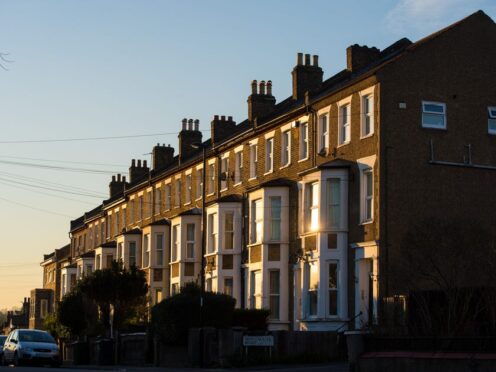
Almost two-thirds of tenants fear they will be evicted now a Scottish Government ban has been lifted, a survey has found.
In a poll carried out by tenants’ union Living Rent between December and March, 62% of 903 tenants in the private rented sector questioned said they worry for their homes.
In response to the cost-of-living crisis, the Government instituted a rent freeze and eviction ban in 2022, but the provision ended at the end of March.
The regulations were replaced by a strengthened adjudication process for rent increases, allowing rises of 6% or less with an effective cap of 12%.
Ministers also published the long awaited Housing (Scotland) Bill last month, part of which allows for the creation of rent control areas where prices are judged to be too high.
In the same survey, 98% of respondents said worries over rent increases and eviction had impacted on their mental health, while 85% believe a price hike will have an impact on their quality of life, with 73% saying they will have to cut back on non-essentials.
Ruth Gilbert, the national campaign officer at Living Rent, said the survey shows the “crisis” facing renters in Scotland.
“Now that the rent cap and eviction ban have ended, tenants are faced with a tidal wave of evictions, rapid increases in homelessness, and an overall rise in poverty,” she said.
“We know we cannot trust landlords to regulate themselves.
“Though the Government has announced their Housing Bill, it will be years before tenants feel its protections.
🏴Scotland needs a housing system that works for everyone.
🏡That's why today I've published @ScotGov's new Housing Bill which delivers significant parts of our New Deal for Tenants.
— Patrick Harvie 🇪🇺🌈 (@patrickharvie) March 27, 2024
“Current regulation is not strong enough. The rent adjudication measures are complex and unworkable and landlords will continue to exploit every loophole possible to increase rents and displace tenants.
“Our findings should be a call to MSPs to champion thorough and robust legislation that puts the hundreds of thousands of tenants first.
“Tenants need a robust system of rent controls tied to the property, not the tenancy, which protects all tenants.”
John Blackwood, chief executive of the Scottish Association of Landlords, called for an end to “stop-gap measures” from the Scottish Government which have not been effective.
“We need to see an end to political rhetoric demonising private landlords and a co-ordinated solution which encourages investment in social housing, council housing, the private rented sector and new owner-occupied homes,” he said.
“Only with that kind of co-ordinated, partnership approach can we make it affordable for landlords to continue to let out homes to rent while increasing supply of all types of housing to make sure that everyone can have the home they deserve at a cost they can afford.”
Minister Patrick Harvie said tenants’ rights in Scotland were the “strongest in the UK”.
He added: “Our temporary changes to the way rents are decided if a tenant seeks a review came into force on April 1, and these will help protect people from very steep rises.
“Tenants can seek review of increases they are concerned about, and protections against illegal evictions will continue to be in place.
“We are working hard to raise awareness of these rights, and I would encourage renters to check the rights that exist to protect them from unfair practices. Tenants who are facing a rent increase that they feel is unreasonable should apply to Rent Service Scotland for adjudication.”

Enjoy the convenience of having The Sunday Post delivered as a digital ePaper straight to your smartphone, tablet or computer.
Subscribe for only £5.49 a month and enjoy all the benefits of the printed paper as a digital replica.
Subscribe